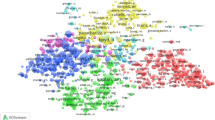Abstract
E-government is a platform and method to provide government services to citizens as well as other residents of a country, through an internet enabled platform. Quite regularly the e-government services are analysed qualitatively and quantitatively, and the extent of success can be measured by the degree of customers’ engagement and satisfaction. Engagement and adoption of a service is a result of awareness, ability, social acceptance, sophistication and provision of the service. Earlier studies on this subject have revealed that lack of initiatives to create awareness, building trust and providing adequate training contributed to a lower rate of adoption and satisfaction. With a fast growth of technology and better infrastructure, situation can significantly change even in a short period. In this article, we analyse success and satisfaction levels of e-government adoption in Saudi Arabia. Our findings are based on qualitative as well as the result of an empirical study of responses of an extensive survey of customers of the west coast of Saudi Arabia, which includes the commercial city of Jeddah.
Similar content being viewed by others
References
Wikipedia, Department of Human Services (Australia), [Online]. https://en.wikipedia.org/wiki/Department_of_Human_Services_(Australia). Accessed 1 Apr 2017
United Nations (2017) A general framework for e-government: definition—maturity challenges, opportunities, and success, [Online]. http://www.unpan.org/Library/MajorPublications/UNEGovernmentSurvey/PublicEGovernanceSurveyintheNews/tabid/651/mctl/ArticleView/ModuleId/1555/articleId/20840/Default.aspx. Accessed 1 Apr 2017
Carter L, Belanger F (2005) The utilization of e-government services: citizen trust, innovation and acceptance. Inf Syst J 15:5–25
Wikipedia, E-government/Definition, [Online]. https://en.wikibooks.org/wiki/E-government/Definition. Accessed 1 Apr 2017
Yamin M (2015) A socio-cultural overview of e-learning in Saudi Arabia. Int Woman Online J Distance Educ 4(3) (ISSN: 2147-0367)
Yamin Mohammad, Aljihani Shahad (2016) E-learning and women in Saudi Arabia: an empirical study. BVICAM’s Int J Inf Technol 8(1):950–954
Yamin M, Albugami MA (2014) An architecture for improving Hajj management. In: Liu K, Gulliver SR, Li W, Yu C (eds) Service science and knowledge innovation ICISO 2014 IFIP advances in information and communication technology, vol 426. Springer, Berlin
The World Post, Saudi Arabia’s Version Of Parliament Has More Women Than US Congress, [Online]. http://www.huffingtonpost.com/vocativ/saudi-arabias-version-of_b_8812762.html. Accessed 1 Apr 2017
UNESCO 2015 (2016) United Nations Educational, Scientific and Cultural Organization (UNESCO), Report, 7, place de Fontenoy, 75352 Paris 07 SP, France
Yesser E-government Program (2017) Online. http://www.yesser.gov.sa/EN/mediacenter/Annual_Reports/Anual%20Report%20foe%20web.pdf. Accessed 1 Apr 2017
Alshehri M, Drew S, Alhussain T, Alghamdi R (2012) The effects of website quality on adoption of e-government service: an empirical study applying UTAUT model using SEM. 23rd Australasian Conference On Information Systems, 3–5 Dec, Geelong
Alsaif M (2013) Factors affecting citizens’ adoption of e-government moderated by socio-cultural values in Saudi Arabia. PhD Thesis, Institute of Local Government Studies School of Government and Society College of Social Sciences University of Birmingham
Basamh SS, Qudaih HA, Suhaimi MA (2014) E-government implementation in the Kingdom of Saudi Arabia: an exploratory study on current practices, obstacles and challenges. Int J Hum Soc Sci 4(2) (special issue)
Carter L, Bélanger F (2005) The utilization of e-government services: citizen trust, innovation and acceptance factors. Info Syst J 15
Al-Ghaith W, Sanzogni L, Sandhu K (2010) Factors influencing the adoption and usage of online services in Saudi Arabia. Electron J Inf Syst Dev Ctries (40):1
Abu Nadi IK (2012) Influence of culture on e-government acceptance. PhD Thesis submitted to Grifith University, Brisbane, Australia
Al-Solbi H, Al-Harbi S (2008) An exploratory study of factors determining e-government success in Saudi Arabia. Commun IBIMA 4:2008
Alharbi AS, Bashal A (2017) Validation of mobile government services among Saudi Arabia Nationals. In: Proceedings of the 11th INDIACom; INDIACom-2017; IEEE conference ID: 40353 2017 4th international conference on “Computing for Sustainable Global Development”, 01st–03rd March, 2017 Bharati Vidyapeeth’s Institute of Computer Applications and Management (BVICAM), New Delhi (India)
Al-Shafi S, Weerakkody V (2010) Conceptual model for e-government implementation in the state of Qatar. Int J Public Sect Manag Emerald
Al-Fakhri M, Cropf R, Higgs G, Kelly P (2008) E-government in Saudi Arabia: between promise and reality. Int J Electron Gov Res 4(2):5–82
Al Ghoson AM (2010) IT strategic plan for e-government program in Saudi Arabia (YESSER). IABR and ITLC conference proceedings, Orlando, FL, USA
Al-Ghaith W, Sanzogni L, Sandhu K (2010) Factors influencing the adoption and usage of online services in Saudi Arabia. EJISDC 40(1):1–32
AlGhamdi R, Drew S, Al-Ghaith W (2011) Factors influencing e-commerce adoption by retailers in Saudi Arabia: a qualitative analysis. Electron J Inf Syst Dev Ctries 47(7):1–23
Al-Khouri AM (2013) E-government in arab countries: a 6-staged roadmap to develop the public sector. J Manag Strat 4(1):80–107. doi:10.5430/jms.v4n1p80
Arslan A (2009) Cross-cultural analysis of European e-government adoption. World Appl Sci J 7(9). http://ssrn.com/abstract=1525863
NIC, Ministry of Interior, Government of Saudi Arabia (2017) [Online]. https://www.moi.gov.sa/wps/portal/Home/sectors/nic/!ut/p/z1/04_iUlDg4tKPAFJABjKBwtGPykssy0xPLMnMz0vM0Y_Qj4wyizfwNDHxMDQx8rYwCXAzcAw08nJ2dPY0svAw0ffSj8KvIDg1T78gO1ARAAuQUFs!/. Accessed 11 June 2017
Ismail MI, Gedeon T, Yamin M (2017) Effects of personality traits and preferences on M-learning. Int J Inf Tecnol 9(1):77–86. doi:10.1007/s41870-017-0012-0
Author information
Authors and Affiliations
Corresponding author
Rights and permissions
About this article
Cite this article
Basahel, A., Yamin, M. Measuring success of e-government of Saudi Arabia. Int. j. inf. tecnol. 9, 287–293 (2017). https://doi.org/10.1007/s41870-017-0029-4
Received:
Accepted:
Published:
Issue Date:
DOI: https://doi.org/10.1007/s41870-017-0029-4




